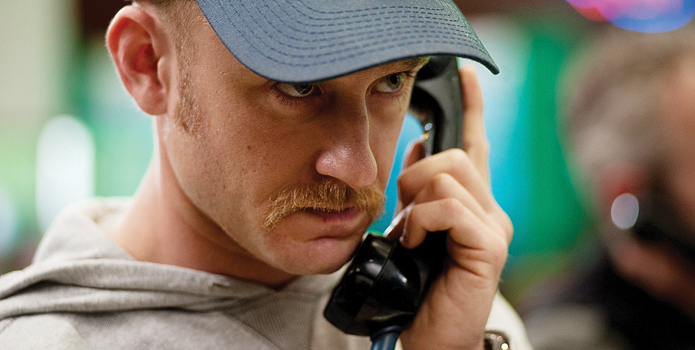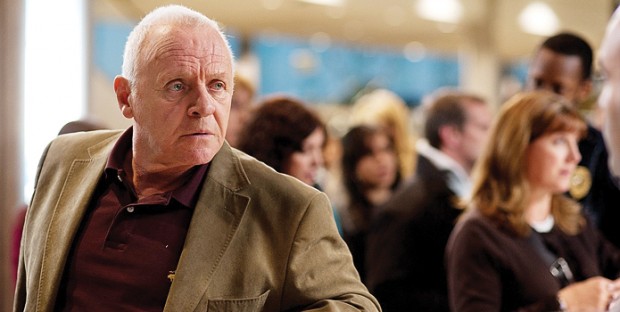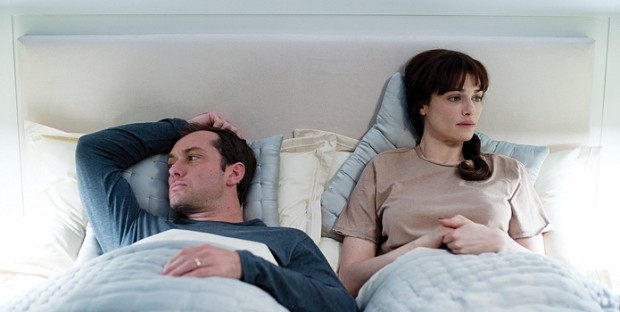Arthur Schnitzler’s 1900 play La Ronde has had quite a legacy. The author initially wrote it as a private play to share amongst his bohemian friends, but it’s gone on to see numerous adaptations across a variety of forms. There’s the 1989 theatrical adaptation by Mihály Kornis, which set the play in communist-era Hungary. There’s Peter Scott-Presland’s gay musical version, which ran at London’s Rosemary Branch Theatre earlier this year. Even the excellent Alan Alda used the format of the play for a story he wrote for M*A*S*H.
Made up of a multitude of interlinking stories, the play is based on the new sexual relationships of a handful of random characters. As is often the case with these things, there is some thread linking all the storylines and characters together: the thread in the original play is a strain of syphilis, and in Alda’s version, a pair of long johns replaced the venereal disease. Peter Morgan (perhaps best known as the writer of all of Michael Sheen’s best films, including The Queen, Frost/Nixon and The Damned United) now writes this film adaptation for director Fernando Meirelles, who burst onto the scene in 2002 with his stunning Brazilian gangland epic, City of God. Such a quality team of writer, director and vintage source material would indicate 360 could be a potential Oscar contender, but it sadly fails to deliver.
Morgan’s script has Anthony Hopkins playing an aging father who is grieving over the disappearance of his daughter. He meets Maria Flor’s character on a plane, as she embarks to Rio to restart her life after being cheated on by her boyfriend. The boyfriend, a muscle-bound photographer, is having an affair with Rachel Weisz’s character, whose husband (Jude Law) is meeting up with a prostitute in Vienna. And so on and so forth. The story structure is reminiscent of many films of the last few decades, but particularly writer Guillermo Arriaga’s Babel and Amores Perros. Babel even had the dramatic device of the gun which travelled around the world getting into wacky adventures; evidently, the little traits of this sub-genre which were once clever and surprising are now becoming trite and hackneyed.
Meirelle’s direction is par for the course on a film like this, with the usual array of splitscreens and montages keeping all the stories fresh in the audience’s head. He often falls into the same traps which befell others of the genre: characters are under-developed, no momentum is built up over the film and the connections between the stories are usually tenuous. Paul Thomas Anderson’s Magnolia is largely considered to be the modern highpoint of these ‘interlinking story’ films, and throughout the duration of its running time, 360 never once produces enough wit or emotional depth to topple that film. It’s a retread of story structures, themes, and stylistic devices, and even the most casual filmgoer will have seen it all before in films like Love Actually, and last year’s god-awful Valentine’s Day.
360 is an odd choice for a movie to open up this year’s BFI London Film Festival. Not least because it’s already been shown at the Toronto International Film Festival, but because it really isn’t as far away from Valentine’s Day as it would like to believe it is. Sure, there’s initially a lot of moping and long stares, and there’s lots of different languages being spoken, but the script gradually brings in the grandstanding speeches and tense climatic struggles so loved by modern low-brow cinema. Both Peter Morgan and Fernando Meirelles have proven they harbour the talent and drive to work on projects which are hard-hitting, original and supremely intelligent. They’ve really wasted their time here.
360 is currently playing at BFI London Film Festival 2011.



